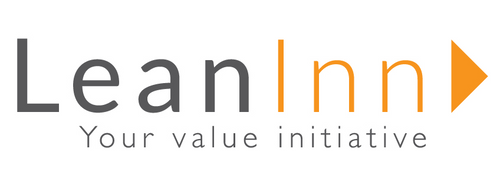
“Lean is not a state, it is a continuous process”.
Over time, the issue of productivity has been approached from multiple perspectives, and although it is something that arouses much interest, in an environment in which competitiveness is a strategic point, not many know its true meaning, for therefore, they do not perceive tangible results in their efforts to improve it.
To improve productivity, the Lean system introduces us to three concepts that help us understand the origin of problems in production: MURA, MURI, and MUDA.
MURI (Overload) consists of working at a rate above the nominal capacity of the production line, causes inefficiencies due to staff fatigue, accelerated deterioration of machines or equipment and generally increases quality defects.
MUDA (Waste) is to use resources greater than the minimum required (Time, Materials, Labor, others). This factor appears when a task or activity within a process does not add useful value (useful defined as positively perceived by the customer) to the final product or service.
The waste originates on costs, decrease in the quality of the service, reduction of the organizational capacity to face the client's requirements. It is classified into seven (7) groups of waste which are:
MUDA of overproduction.
Produce more than demanded or produce something before it is needed. The false belief that it is preferable to produce large batches to minimize production costs and store them in stock until the market demands them is quite common. However, this bad practice is a clear waste, since we use labor, raw materials, and financial resources, which should have been dedicated to other more necessary things.
The main causes of overproduction are:
- A “just in case” logic: produce more than necessary.
- Make a bad use of automation and let the machines work at their maximum capacity.
- Poor production planning.
- An unbalanced distribution of production over time.
MUDA of over inventory.
It refers to the stock accumulated by the production system and its movement within the plant, which affects both materials, such as parts in process, and the finished product. This excess raw material, work-in-progress, or finished product does not add any value to the customer, but many companies use inventory to minimize the impact of inefficiencies in their processes.
MUDA of defective products.
Production defects and service errors do not add value and produce enormous waste, since we consume materials, labor to reprocess and/or attend to complaints, and above all they can cause customer dissatisfaction.
It is preferable, therefore, to prevent defects rather than search for and eliminate them.
The causes of these defects can be:
- Lack of control in the process.
- Low quality.
- Poorly planned maintenance.
- Insufficient training of operators.
- Bad product design.
MUDA of transport of materials and raw materials.
Any unnecessary movement of products and raw materials must be minimized since it is a waste that does not add value to the product. Transporting parts one way and not thinking about the return represents 50% efficient transport, an efficient route must be planned, both within the company itself and abroad. Transportation costs money, equipment, fuel, labor, and increases delivery times.
MUDA of unnecessary processes.
The optimization of the processes and constant revision of the same is essential to reduce phases that may be unnecessary as the process has been improved. Doing extra work on a product is a waste that we must eliminate, and it is one of the most difficult to detect, since many times the person responsible for overprocessing does not know that he/she is doing it. For example: clean twice, or simply make a report that no one is going to consult.

MUDA waiting.
Waiting is the time, during the production process, in which no value is added. This includes waiting for material, information, machines, tools, delays in the batch process, breakdowns, bottlenecks, human resources...
In manufacturing terms, we would be talking about the aforementioned "bottlenecks", where a wait is generated in the production process because one phase goes faster than the one that follows, with which the material reaches the next stage before can be processed.
MUDA of unnecessary movements of the worker.
Any unnecessary movement of people or equipment that does not add value to the product is wasteful. Includes people in the company going up and down through documents, searching, choosing, bending, etc. Even walking unnecessarily is a waste. This waste causes an increase in operator fatigue with the consequent back problems and other ailments, as well as a decrease in the time dedicated to doing what really adds value.
MURA (Variability) refers to the inconsistency in the use of resources, an irregularity in the workload. The three concepts could be coupled as follows: Mura (Variability) = Muri (Overload) + Muda (Waste) Mura, Muri and Muda are basic ideas that we must know to identify the source of our inefficiency.
To eliminate this, we need to analyze our processes and work environment, as well as check if our production system is stable and properly optimized.
At LeanInn we advise you to carry out a correct implementation in the processes and solve those problems that affect the continuous improvement of the products and/or services in your organization. For more information enter the following link: https://bit.ly/381Egkx
We are your value initiative wherever you are.

